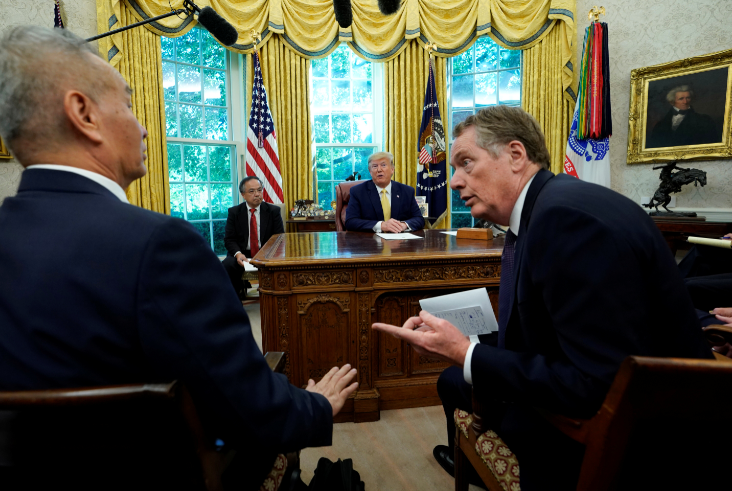Prominent economists from China and the US including Joseph Stiglitz, Michael Spence, and three other Nobel winners say that the two largest economies should abandon trade issues and instead agree to form a new path for more latitude for both countries.
A joint statement issued in China by 37 economists says that trade talks' only emerging solutions were either wholesale economic reforms by China that would lead to a convergence of economic models or an economically-damaging parting of ways.
The group of economists points out that a more sensible framework for future trade relations is one where China is given room to pursue industrial policies that are often a target of criticism from the US.
This would also give the US latitude to respond with targeted tariffs if China's policies are damaging to its interests.
The statement of economists released on Sunday was led by Harvard economist Dani Rodrik, New York University law professor Jeffrey Lehman and dean of the National School of Development at Peking University Yang Yao.
Rodrik is a critic of globalization and has argued that the current global trading system often violates nations' sovereignty.
The proposal's other signatories include former World Bank chief economists Justin Yifu Lin and Kaushik Basu.
The statement indicates that the proposed approach makes sure much of the gains from trade between China and the US are preserved.
It also stated that their proposal would be in line with the current multilateral system.
However, they pointed out that this would enlarge both the US' and China's rights under current World Trade Organization rules.
The prominent economists came up with the suggestions as they wrestle on ways of how to respond to US President Donald Trump's challenge to the existing governance of the global economy.
Economists' take on what to do with trade issues as "phase one" of a trade truce between China and the US is getting designed to avoid further escalation of the global economic slowdown.
This partial deal, as a result of the China-US trade talks, includes China getting agricultural products from the US at almost the same amounts before America imposed tariffs in 2018.
Likewise, China would hold off the threat of further US duties.
Beijing is also expected to do intellectual property reforms.
This deal, which Trump said he hopes to sign with China's Xi Jinping at a summit in Chile next month, would also bring forth discussions at a later time of other US concerns such as China's industrial policies.






